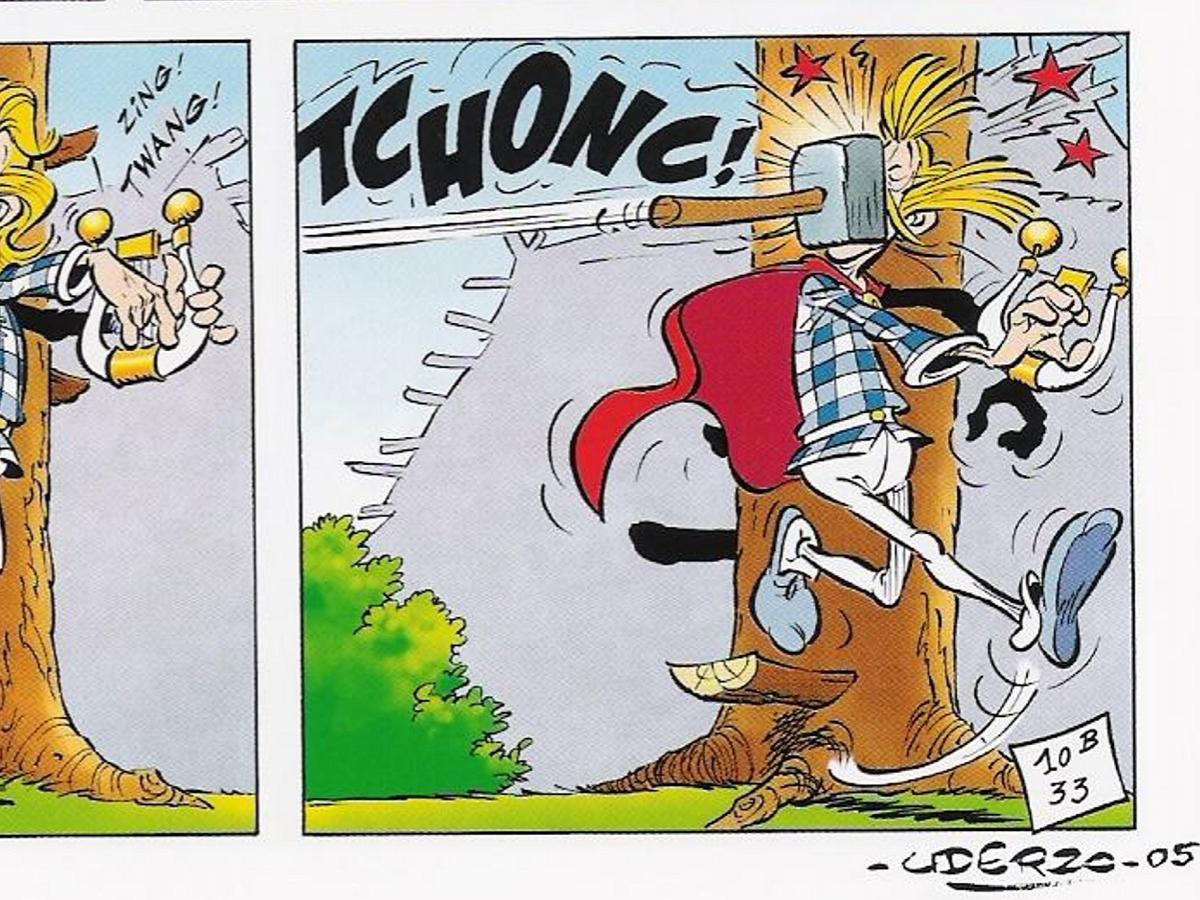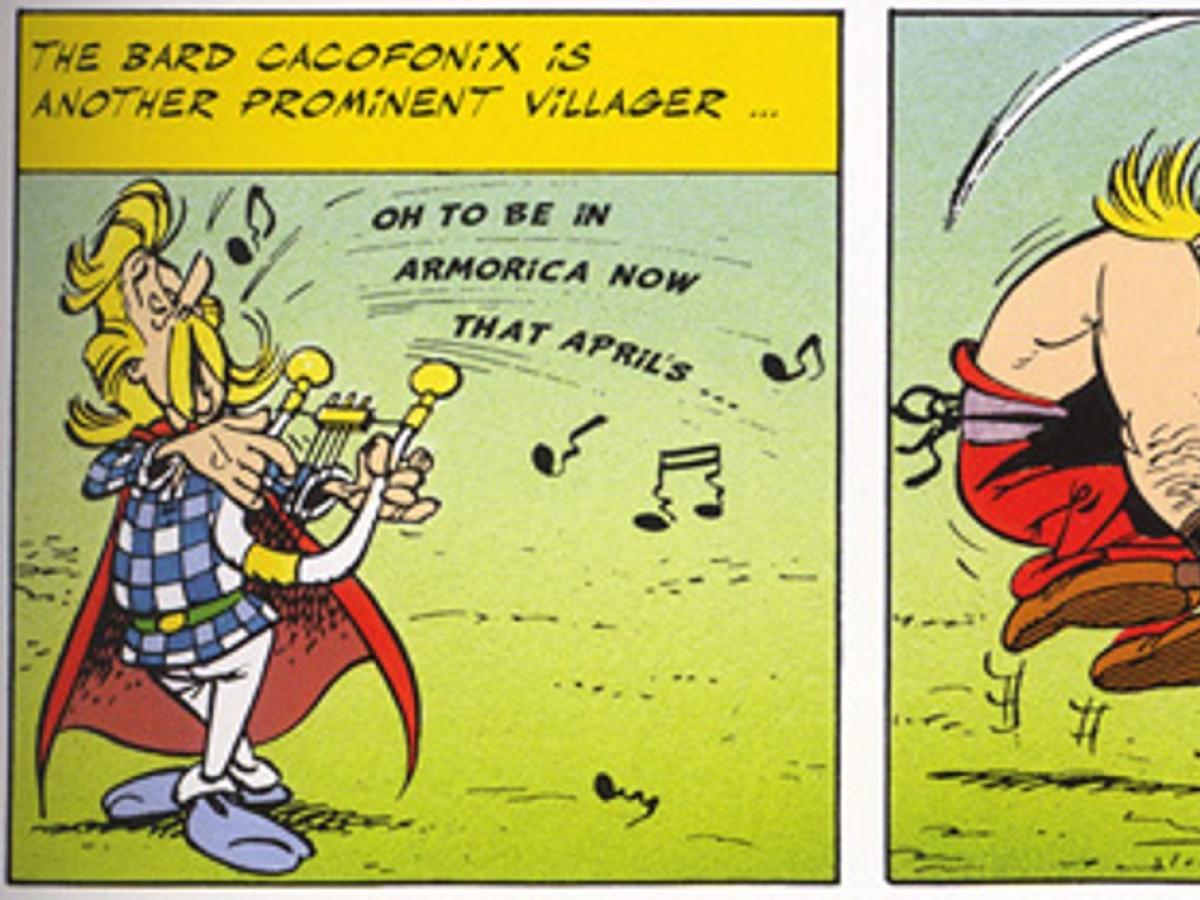
An excerpt from Asterix and the Falling Sky: Book 33, 200. (Alberto Uderzo)
A character from the Asterix cartoon series could be an inspiration to musicians who are faced with setbacks.
Researchers from the University of Adelaide undertook a multidisciplinary study of the character of Cacofonix, the village bard from the comic book series The Adventures of Asterix.
Dr Jessica Stanhope from the School of Allied Health Science and Practice, who is an expert in musicians' musculoskeletal symptoms, co-authored the study.
"Cacofonix, like many musicians and other performing artists, is challenged by a continuous series of potential career setbacks through injury, but demonstrates uncanny resilience in the way he bounces back," she said.
"By capturing the concept of resilience, the author René Goscinny and cartoonist Albert Uderzo translate both the reality of a physical injury and the complexity of an individual's response to an injury, into imagery that can be absorbed in seconds."
In their study published in the International Journal of Comic Art, the researchers highlight how cartoonists capture a range of human experience in line drawings, from operational minutiae to existential philosophy, and the lessons we can learn from this.
"In some cases, perhaps counterintuitively, the best advice for a musician experiencing pain may be to continue playing, despite the pain," says Dr Stanhope, speaking from experience as a resilient musician herself.
"Cacofonix makes this point beautifully by picking up where he left off, no matter the severity of his injuries - which, in cartoon style, are often exaggerated crushing injuries that would kill most people."
"Cacofonix, like many musicians and other performing artists, is challenged by a continuous series of potential career setbacks through injury, but demonstrates uncanny resilience in the way he bounces back. By capturing the concept of resilience, the author and cartoonist translate both the reality of a physical injury and the complexity of an individual's response to an injury..."Dr Jessica Stanhope from the School of Allied Health Science and Practice, and co-author on the study.
Dr Lisa Mansfield, Senior Lecturer in the School of Humanities and lead author of the study, analysed exactly how these effects were achieved.
This analysis of bouncing back from adversity is a case study that drew on both the humanities and health sciences.
"Cacofonix's actions are complemented by the way he is illustrated, for example sporting a new springy blonde quiff on his return to performing following injury," says Dr Mansfield, who is also an art historian and long-time Asterix fan.
"The plot is thickened, and the comedy enhanced, by the fact Cacofonix's playing is arguably not the best, as one might guess from his name. This situation is beautifully captured by the cartoonists using jagged musical notes mingled with short, zigzag lines emanating from the bard."

Asterix and the Class Act: Book 32, 2003. (René Goscinny and Alberto Uderzo)
Professor Philip Weinstein, Research Fellow in the School of Public Health, was also an author on the study.
"By collaborating, experts in seemingly disparate fields can make contributions to knowledge that neither would have envisaged independently," he says.
"Universities are one of the few environments where this sort of creative multidisciplinary research can take place. Despite funding mechanisms not always supporting cross-faculty collaborations, I encourage researchers to nevertheless create such opportunities wherever they can, because you never know what it will lead to!"






